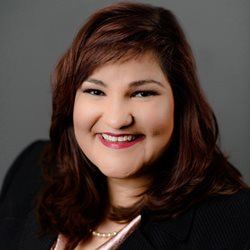Marietta Rodriguez, president and CEO of NeighborWorks America, believes nothing is worse than doing nothing. That was the theme of a NeighborWorks campaign during the housing crisis of 2008. At the time, Rodriguez was NeighborWorks' vice president of National Homeownership and Lending Programs. Now at the helm of the organization, Rodriguez spent the week of Sept. 15 – the anniversary of the day Lehman Brothers filed for bankruptcy in 2008 – sharing lessons from that period. She continues to share those lessons, which follow, in her own words:
 As this country reels from COVID-19's ongoing impact, we face disastrous financial symptoms as well as the devastating physical ones. Thousands of individuals and families teeter on the edge of losing their homes because of the economy's decline. Another wave of widespread national foreclosures and evictions is headed our way. As one who was at the epicenter of the national foreclosure crisis more than a decade ago, I can tell you firsthand that we have not learned our lesson, and we are not prepared.
As this country reels from COVID-19's ongoing impact, we face disastrous financial symptoms as well as the devastating physical ones. Thousands of individuals and families teeter on the edge of losing their homes because of the economy's decline. Another wave of widespread national foreclosures and evictions is headed our way. As one who was at the epicenter of the national foreclosure crisis more than a decade ago, I can tell you firsthand that we have not learned our lesson, and we are not prepared.
Ten million. That's the number of people who lost their homes during the last mortgage crisis. Those millions aren't just faceless facts or interesting historical data points. They're our family, friends, colleagues and neighbors – many of whom only very recently climbed out from under a life-altering financial burden to face yet another equally dire and damaging situation with long-term implications.
The current economic downturn may have been caused by a global pandemic and not by irresponsible lending, but for homeowners across the country, the result is the same: the loss of a safe, stable place to call home at a time when we desperately need to be securely and affordably sheltered. Few communities are immune – urban, rural and suburban alike, in all corners of the country, are feeling the effects. The impact of COVID-19 has the potential to leave even greater numbers homeless, as early rental moratoria and aid programs come to an end in the next few weeks without firm plans about next steps coming from Capitol Hill.
From 2008-2018 through the National Foreclosure Mitigation Counseling program, NeighborWorks America helped more than 2 million homeowners access the tools and resources they needed to retain their homes. In that time, we learned valuable lessons as a profession. For many of us who work in affordable housing and community development, the same issues are emerging today, and the pattern is all too familiar. Individual groups are stepping up, but we're not responding as quickly or as cohesively as we once did. More than six months into the pandemic in the United States, our collective response is piecemeal at best, and it is beyond time that the housing industry issued its own clarion call. Critical time and the opportunity to stop things from getting worse are quickly slipping away.
During the Great Recession, and subsequent foreclosure crisis, we saw leadership at the federal level move swiftly to respond. We also saw great coordination between the lending agencies, which helped the process and implementation run smoother. We're not seeing that sort of bold collaboration happening today, and we're struggling as a result. Mortgage lenders and servicers have lost some muscle memory when it comes to working with community groups and nonprofits as they had just a short time ago. In the absence of leadership on this issue, it's up to us, the housing counseling organizations and program development experts, to bring stakeholders to the table. We were on the front lines of the foreclosure crisis 12 years ago, and as an industry we must step up and do it ourselves. Too much is at stake.
We need to increase our transparency and communication – with government, other nonprofits and industry groups, and consumers. We need to restore the vehicles of collaboration among lenders and work in partnership to galvanize our cooperative power that enables us to help keep people in their homes. It's time we all emerge from our individual virtual "dens of isolation" and come together to enact a plan of action to mitigate a second eviction and foreclosure crisis and keep families safe.
Providing support for our communities is a top priority. It's an objective we can all agree upon, but we need more than consensus; we need tangible action. We cannot afford to see 10 million more homes lost for something we had the knowledge to prevent.
– Marietta Rodriguez
09/25/2020

